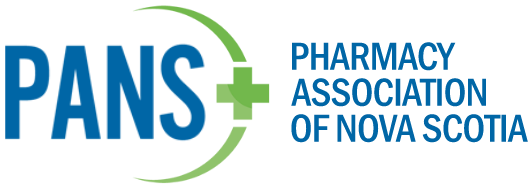Your Pharmacy Team
There are both general staff and professionals working in a pharmacy, each position having very distinct roles and responsibilities, and each are easily identifiable by their name tags.
The team may include: pharmacists, pharmacy interns, pharmacy students, registered technicians, pharmacy assistants, and cashiers.

Pharmacists
- Have completed an accredited university pharmacy degree program and an assigned period of practice experience
- They are trained in all aspects of handling medications including dispensing prescription and non-prescription medications, drug therapy, and understanding drug-interactions and side effects
- They are trained in managing medication therapy including patient counselling
- Understand and comply with all health care and pharmacy laws
- Successfully completed provincial and national examinations
- Meet continuing education requirements annually
What you can expect from your pharmacist:
- The pharmacist will review your prescription and gather all relevant information directly from you and your record at the pharmacy to ensure that:
- Your health care provider (doctor, dentist, etc.) has provided all information necessary
- The medication, dose, and directions are appropriate for your health condition
- The prescription is safe to take with your other prescriptions
- There are no potential problems like drug interactions or duplicate therapy
- You are not allergic to the medication
- Your medications are working and you are not experiencing side effects
- If the pharmacist discovers any problems with your prescription they will contact the prescriber, or they are authorized to adjust prescriptions to make them correct for you
- The pharmacist will counsel you on all of your prescription medication. Counselling is a conversation between you and your pharmacist to be sure you know about and understand your medication. Counselling should help you take your medication correctly and safely. It will include:
- Who the medication is for
- What the medication is for
- The directions for proper use
- Common side effects or interactions, and how to manage them
- How soon to expect the medication to work
- What to do with a missed dose
- How to store the medication
- How the pharmacist will monitor the medication
- The pharmacist can assess and prescribe for minor ailments, adapt your prescription medication, renew prescriptions that have no refills
- The pharmacist can assess and prescribe vaccines, and inject vaccines
- The pharmacist can offer information on non-prescription products including natural health products
- Can offer suggestions on lifestyle and other non-drug measures
Pharmacy Students and Pharmacy Interns
- Are individuals in the process of completing their educational requirements to become pharmacists
- Can only practice pharmacy under the direct supervision of a licensed pharmacist who is present in the dispensary
- A pharmacy student can only practice if a pharmacist is observing their practice
- Under a pharmacists supervision, they can provide counselling on prescription medication, provide information on non-prescription products, on lifestyle and other non-drug measures
Registered Pharmacy Technicians
- Are regulated healthcare professionals
- Have completed an accredited pharmacy technician program or nationally recognized bridging program
- Train and become qualified in aspects of handling medications including dispensing medications
- Complete an assigned period of practice
- Understand and comply with health care and pharmacy laws
- Successfully complete an assessment of their competencies
- Successfully complete provincial and national examinations
What can you expect from your registered pharmacy technician
- Will do technical checks on prescriptions, including checking pill packs
- Can take verbal orders from physicians over the telephone
- They do not answer any questions about prescription or non-prescription drug therapy
- Can manage pharmacy inventory, prepare and package prescriptions, answer the telephone, make compounds, pass out prescriptions at the cash and make pill packs
Pharmacy Assistants
- Are not regulated health care professionals, but still work in the pharmacy
- They must operate under the direct supervision of a pharmacist
- Are required to maintain the confidentiality of all patient information that is handled in the pharmacy
- Can manage pharmacy inventory, prepare and package prescriptions, answer the telephone, make compounds, pass out prescriptions at the cash and make pill packs
- They do not answer any questions about prescription or non-prescription drug therapy
Cashiers
- Are not regulated health care professionals, but still work in the pharmacy
- They must operate under the direct supervision of a pharmacist
- Are required to maintain the confidentiality of all patient information that is handled in the pharmacy
- May handle some inventory
- Pass our prescriptions at the pharmacy cash
- They do not answer any questions about prescription or non-prescription drug therapy
